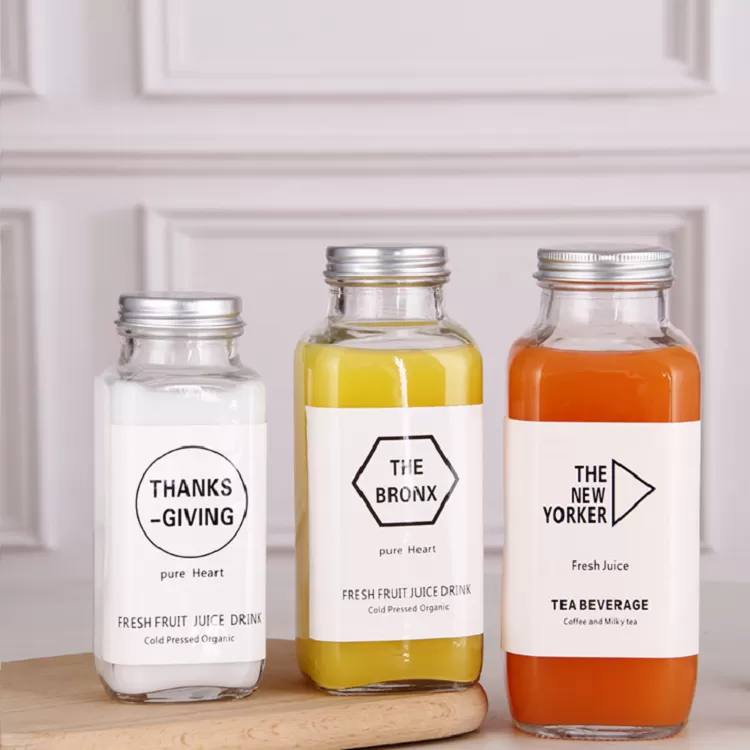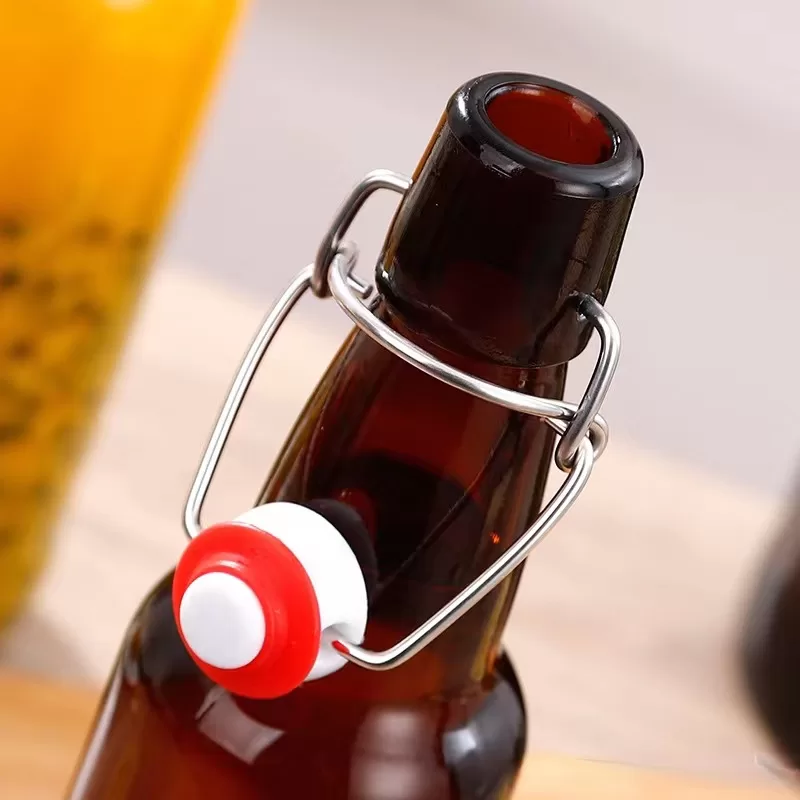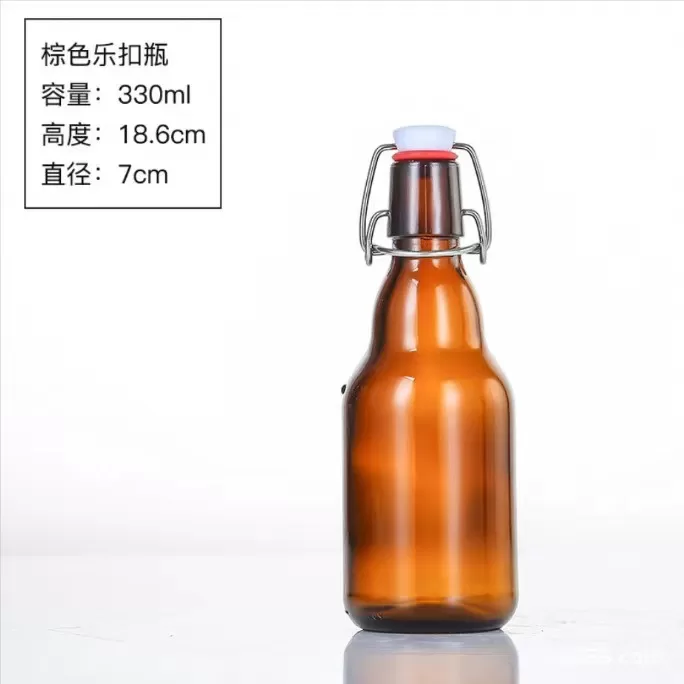Why Do Drinks Taste Better in Glass Bottles? The Science Behind Your Sip
05-13-2025
Ever wondered why your favorite soft drink, like a Coke, just seems to taste better when it’s from a glass bottle? You're not alone! Many people agree that drinks taste better in glass bottles compared to plastic or cans. It's not just in your head; there's a real science behind why water tastes better, colas are crispier, and the overall flavour is purer when your beverage comes in glass. This article will explore why glass bottles are the champions of taste. We'll look at how different materials, like plastic containers or metal, can affect the taste, and why glass packaging helps keep your drink tasting exactly as the maker intended. If you've ever noticed that Coke tastes different from a plastic bottle versus a glass bottle, or why your drinks taste fresher from glass, keep reading. We'll uncover why choosing glass is a smart move for the best taste experience.
What Makes Glass the Champion for Flavour Preservation?
When it comes to keeping your drink tasting exactly as it should, glass is the undisputed champion. The main reason for this is that glass is an inert material. "Inert" is a science-y word that simply means glass doesn't react with the food and drinks it holds. Imagine you're storing your favorite juice. You want it to taste like juice, right? Not like the container it's in! A glass bottle doesn't have a taste or smell of its own that can mix with your drink. This means the original taste and flavour are perfectly preserved.
Think about it this way: some materials can be like chatty neighbors, always trying to add their own two cents (or flavors!) to the conversation. Glass, on the other hand, is like a quiet, respectful guardian. It just holds your drink, keeping it safe and pure, without changing it. This is why many people believe that drinks taste better in glass. There's no risk of weird chemicals seeping into your beverage from the container itself, which can sometimes happen with other types of packaging material. So, when you pick up a drink in a glass bottle, you’re getting the pure, intended flavour every single time. This commitment to purity is why, as a factory owner, I, Allen, believe so strongly in the power of glass packaging.

Why Does Coke Taste Different When It Comes in Glass Packaging?
It's a common claim: Coke tastes better in glass. And for many, this isn't just a feeling; a bottle of Coke from glass truly offers a superior taste experience. A big reason for this difference in how Coke tastes lies in how a glass bottle interacts with the Coca-Cola itself, especially its fizziness, or carbonation. Glass is very good at keeping the carbon dioxide – those tiny bubbles that make your soft drink fizzy – locked inside. A plastic bottle, on the other hand, is more like a leaky container for these bubbles. Over time, the CO2 can slowly escape through the plastic, making the drink less fizzy and affecting its overall taste profile.
Furthermore, because glass is inert, it doesn't react with the Coca-Cola. This means the carefully crafted flavour of Coke remains unchanged. You're tasting the soft drink exactly as the Coca-Cola Company wants you to. There are no chemicals from the glass packaging itself that might leach into the drink and change the taste. So, when you enjoy a Coke from a glass bottle, you're getting that classic, crisp taste because the glass preserves both the flavour and the full carbonation. This is why many believe Coca-Cola tastes better and why the iconic glass bottle is so beloved. The way the drink tastes different in glass is a testament to the material's quality.
How Does Packaging Material Truly Affect the Taste and Quality of Food and Drinks?
The packaging material you choose for food and drinks can make a big difference in how they taste and quality. It's not just about holding the product; the container itself can interact with what's inside. For example, some plastics can leach chemicals into your drink. One such chemical is acetaldehyde, which can give beverages a slightly fruity or plastic-like off-flavour. This is a common concern with a plastic bottle. This leaching can alter the taste and quality of the product, meaning it doesn't taste the way it was originally intended.
Metal cans, often used for sodas and beers, can sometimes impart a subtle metallic taste. While can manufacturers have made great strides in lining cans to prevent this, some sensitive taste buds can still detect a difference. Compared to plastic and metal, glass packaging stands out. Glass is non-porous and, as we've discussed, inert. This means it acts as a strong barrier against external elements and doesn't allow anything from its own structure to seep into the contents. It doesn't affect the taste by adding unwanted flavors or by reacting with the product. This is why glass ensures the taste and quality of food and drinks remain pure and untainted. This is a key reason why many premium brands use glass.
Is There a Solid Scientific Reason Why Drinks Taste So Much Better in Glass?
Yes, there absolutely is a scientific reason why drinks taste better in glass, and it largely comes down to the chemical properties of glass itself. The science behind this preference is rooted in glass being an inert and impermeable material. "Inert" means that glass doesn't undergo chemical reactions with the contents of the bottle. So, unlike some plastics that might release tiny amounts of chemicals (like BPA or phthalates, though many plastics are now made without these) or metal cans that could potentially corrode or impart a metallic taste, glass just sits there, holding your drink without changing its chemical makeup. This ensures perfect taste preservation.
Furthermore, glass is non-porous. This means there are no tiny holes for flavors or aromas from the drink to escape, or for outside air or odors to get in and alter the taste. This impermeability also helps maintain the carbonation in fizzy drinks much more effectively than a plastic bottle. The CO2 molecules have a much harder time escaping through solid glass. So, the crispness and the original flavour profile of your soft drink or even plain water tastes better because it's protected. This is why, from a scientific standpoint, glass is one of the best materials for ensuring your beverage tastes exactly as it was meant to.
The Purity of Glass Packaging: Does It Really Make That Much of a Difference to Flavour?
The purity of glass packaging really does make a significant difference to flavour, and here’s why. Glass is primarily made from natural raw materials: sand, soda ash (sodium carbonate), and limestone. These are melted at very high temperatures and then cooled to form the strong, stable material we know as glass. This process itself, and the nature of these raw materials, means that glass doesn't contain the complex array of synthetic chemicals that can sometimes be found in other packaging options, particularly some plastics. This inherent purity is what makes glass so special.
Because it's so pure and stable, glass ensures that there's no transfer of unwanted substances into your drink. There's no risk of harmful chemicals that could leach from the container into the beverage, potentially altering its taste and quality or posing health concerns. This is a huge advantage. When you drink something stored in glass, you're tasting the product, and only the product. The glass itself is like an invisible, tasteless shield, protecting the original taste. For anyone concerned about purity and an unadulterated taste experience, choosing glass is a clear winner. It preserves the taste because it doesn’t add anything of its own.

Carbonation and Glass Bottles: Are They a Perfect Match for Fizzy Drinks?
Yes, carbonation and glass bottles are indeed a perfect match, especially for fizzy drinks like your favorite soft drink or sparkling water. The main reason a glass bottle is superior for carbonated beverages like Coke is its low permeability to gases, particularly carbon dioxide (CO2), which is what gives these drinks their fizz. Think of a plastic bottle as having tiny, microscopic pores. While you can't see them, these pores allow CO2 to slowly leak out of a plastic container over time. This is why a soft drink in a plastic bottle much faster tends to go flat and will taste less lively than one in glass.
A glass bottle, on the other hand, is much more solid and non-porous. It’s much harder for CO2 to escape through the walls of a glass bottle. This means your fizzy drinks retain their carbonation for a longer period, ensuring that your soda won’t go flat quickly. The drink stays crisp, bubbly, and refreshing, just as it was intended. So, when you hear that satisfying "psssst" sound opening a glass bottle of Coke, and feel that sharp, fizzy sensation, it’s because the glass bottle has done an excellent job of keeping all those delightful bubbles right where they belong. This ensures the drink remains flat and will taste delicious for longer.
Beyond Just Taste: What Are the Other Compelling Benefits of Choosing Glass Bottles?
While the fact that drinks taste better in glass is a major draw, there are many other compelling reasons to use glass. One of the most significant is the environmental benefits. Glass is 100% recyclable and can be recycled endlessly without any loss in quality or purity. Using recycled glass to make new glass bottles consumes less energy than making glass from raw materials, reducing the carbon footprint. This makes choosing glass an eco-friendly option, something that resonates with many consumers and businesses today, including supporters like the Friends of Glass community.
Health is another key benefit. Glass is non-toxic and free from potentially harmful chemicals like BPA, which can sometimes be found in certain plastics. With glass, there's no risk of harmful chemicals leaching into your beverage. Aesthetically, glass bottles often have a premium look and feel. They can be molded into beautiful and unique bottle shapes, enhancing brand image and consumer appeal. Many people also find the drinking experience from a glass bottle more satisfying – it feels cooler to the touch and more substantial. Bottles also can be easily cleaned and reused if designed for that purpose. As a manufacturer, I've seen firsthand how these benefits, in addition to taste, make glass a preferred choice.
Can Plastic or Metal Containers Actually Alter the Taste Experience of Beverages?
Yes, plastic or metal containers can indeed alter the taste experience of beverages, and this is a key reason why many people feel that drinks taste better in glass. Let's look at plastic containers first. As mentioned, plastic is much more CO2-permeable than glass, meaning that carbonated drinks in a plastic bottle can lose their fizz and go flat and will taste dull more quickly. Additionally, some plastics can leach chemicals like acetaldehyde or other compounds into the drink, which can impart a subtle "plastic" or chemical flavour. You might notice this if a plastic bottle has been sitting in the sun or if the drink from the fridge doesn’t taste that great after being stored in plastic for a while.
Metal containers, typically aluminum cans, can also affect taste. While modern cans have internal linings to minimize direct contact between the beverage and the metal, some people, especially those with sensitive taste buds, report a slight metallic taste. This can change the taste of the drink from its intended profile. Compared to plastic and metal, glass doesn't have these issues. It doesn't react with the contents, doesn't leach chemicals, and provides a superior barrier, ensuring the original taste is preserved. This is why there's often a noticeable difference between drinking from glass versus plastic or metal.
For Business Owners Like Mark Thompson, Why Should Prioritizing Glass Packaging Be a Key Strategy?
For business owners like Mark Thompson, who are in the business of sourcing packaging for cosmetic and personal care products, or even for food and beverage clients, prioritizing glass packaging can be a very smart strategy. Mark understands the importance of quality and competitive pricing. While he might source from developing countries like China for cost-effectiveness, the end-users of his clients' products are often discerning consumers who value quality, purity, and a premium taste experience (or, in the case of cosmetics, a pure and uncontaminated product experience). Choosing glass aligns perfectly with these values. A glass bottle or jar inherently signals higher quality and luxury.
In my experience as Allen, working at a factory with 7 production lines here in China, we export a lot to the USA, North America, and Europe. Clients like Mark are increasingly aware that glass ensures the quality and preserves the taste (or efficacy, for non-food items) of the product inside. It doesn't leach chemicals, it doesn't alter the taste, and it offers an excellent barrier against external contaminants. This is crucial for maintaining product integrity, whether it's a high-end custom glass bottles for beverages or delicate premium perfume bottles. Furthermore, the aesthetic appeal of a unique bottle design in glass can significantly enhance brand perception and justify a higher price point for his clients' products. Glass bottles can also be customized in many ways, adding to their appeal. For products where purity and sensory experience are paramount, like with food and drinks, or even specialty items like cannabis jars, glass is one of the best stored options.

Mark's pain points, such as concerns about quality inspection, certifications (like FDA compliance), and communication, are areas where a reliable supplier like us can make a difference. We understand these needs and strive to provide transparent and efficient service. By choosing a quality-focused glass bottle manufacturer, Mark can offer his clients packaging that not only looks good but also protects the product and delivers on the promise of purity and quality, which ultimately makes their products taste better or perform better.
Glint Glassbottle: Your Trusted Partner for Premium Glass Packaging Solutions from China
As Allen, from Glint Glassbottle in China, I've spent years in the glass manufacturing industry. We operate 7 production lines, and our focus has always been on producing high-quality glass packaging, whether it's various food jars, beverage bottles, or specialty items like cannabis jars. We primarily export to demanding markets like the USA, North America, Europe, and Australia, so we understand the high standards required. We know that when a product comes in glass, the expectation is that it preserves the taste and integrity of what's inside. That's why we use glass materials that are robust and pure, ensuring our bottles protect the contents effectively. A glass bottle from our factory is designed to deliver that superior experience, making sure that, for example, a soft drink retains its fizz and flavour, or that beer in glass provides the original taste the brewer intended.
We recognize the concerns of procurement officers like Mark Thompson. Quality inspection is paramount, which is why we have stringent quality control processes. We provide necessary certifications, understanding the importance of compliance with standards like FDA regulations. Logistical efficiency and clear communication are also priorities for us, as we aim to avoid the shipment delays and miscommunications that can be so detrimental to our clients' product launches. Even though Mark might lack deep technical expertise, we ensure our sales team can explain the benefits and features of our glass bottle options clearly, from the type of soda ash used, to the design possibilities that can create a unique bottle. We believe glass allows for the best presentation and preservation, and our commitment is to provide packaging that ensures the taste and quality our customers, and their customers, expect. You can explore our range of high-quality glass packaging on our website. Glass also offers environmental benefits, being made from recycled glass and natural materials, which is increasingly important. We believe that choosing glass is choosing quality, and we are here to be your reliable partner in that choice. We aim to be the solution for businesses looking for high-quality, dependable glass bottle manufacturing.
To sum up, the reasons your drinks often taste better in glass bottles are clear and compelling:
- Inert Material: Glass doesn't react with your drink, ensuring the original taste and flavour are unchanged. There's no metallic taste or plasticky notes.
- Purity: Made from natural materials like sand and soda ash, glass packaging doesn't leach harmful chemicals into your beverage.
- Superior Carbonation Retention: A glass bottle is less permeable to carbon dioxide than a plastic bottle, meaning fizzy drinks like Coke stay fizzier for longer, so your soda won’t go flat as quickly.
- Barrier Properties: Glass acts as an excellent barrier against external factors, protecting the contents of the bottle from oxygen or other contaminants that could affect the taste.
- Overall Experience: The feel of a cool glass bottle and the clean taste it provides enhance the overall drinking experience. Many, including Friends of Glass, advocate for these benefits.
- Health and Environment: Choosing glass is a healthier option due to no chemical leaching and an environmentally sound choice because recycled glass can be used repeatedly. This means less need for any additional processing that might change the taste or harm the planet.
- Consistency: Whether it’s Coca-Cola, water, or beer in glass, the material ensures the taste is consistent and pure, which is why many believe that everything tastes better in a glass.
These factors combine to make glass bottles the preferred choice for those who prioritize taste, quality, and purity in their beverages.








